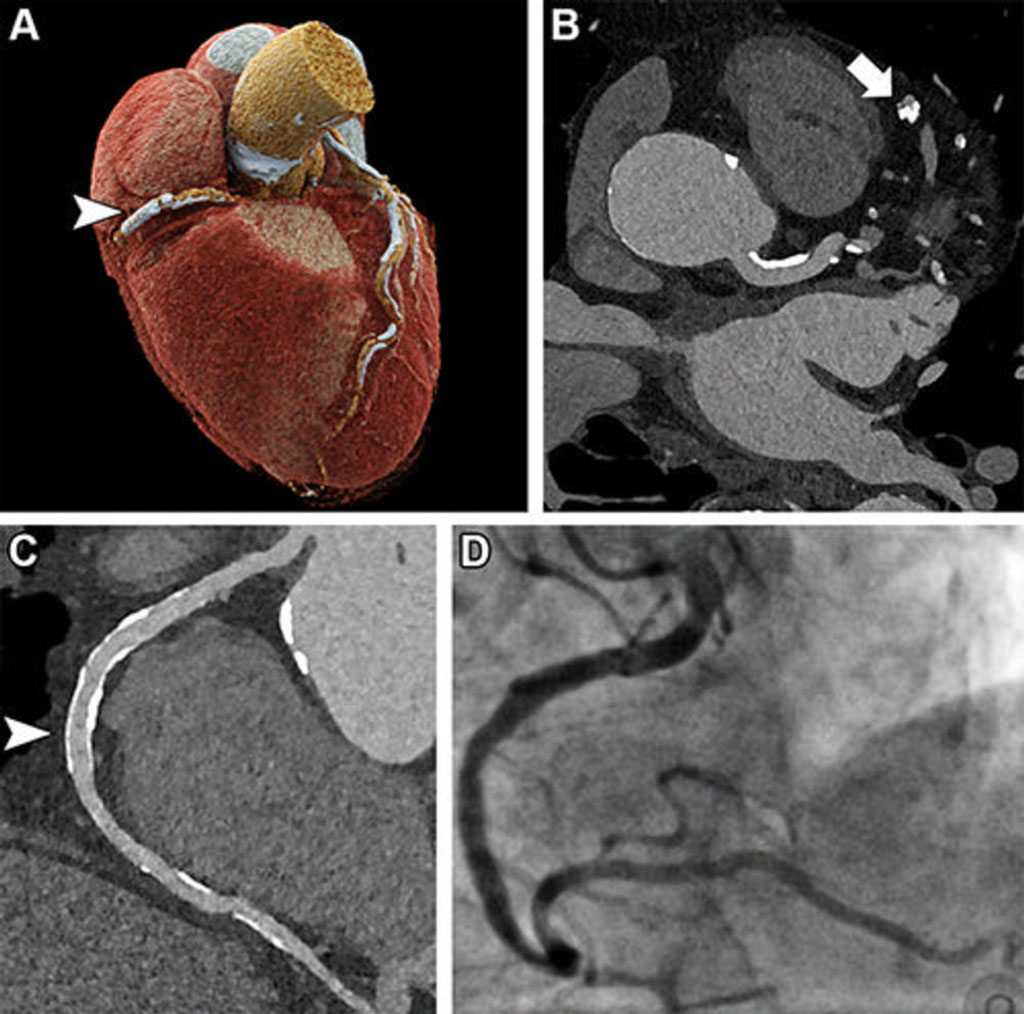Ultra-High Resolution CT Imaging Improves Diagnosis of Coronary Artery Disease
Posted on 21 Jun 2023
Coronary artery disease, the most prevalent type of heart disease, is effectively diagnosed in low to intermediate-risk patients using Coronary CT angiography (CCTA). However, applying CCTA to high-risk patients is challenging due to prevalent coronary calcifications and stents, which can appear overly extensive on CCTA, leading to overestimations of blockages and plaque, false positives, and potentially unnecessary invasive testing. As such, CCTA is not recommended for high-risk individuals according to current guidelines. However, ultra-high-resolution coronary CT angiography (UHR-CCTA), a relatively new tool utilizing photon-counting CT scanners, holds promise in noninvasively assessing high-risk patients for coronary artery disease.
Researchers at the University of Freiburg (Freiburg, Germany) have now discovered that UHR-CCTA provides high-quality imaging and accurate diagnoses in high-risk patients, thereby potentially broadening the patient pool for noninvasive screening. In their study, the research team compared the diagnostic accuracy of UHR-CCTA with invasive coronary angiography (ICA), the reference standard, in 68 patients suffering from severe aortic valve stenosis, a serious disease that impedes blood flow from the heart to the aorta. UHR-CCTA demonstrated high sensitivity and specificity in detecting coronary artery disease, with a median overall image quality score of 1.5 on the 5-point Likert scale, where 1 represents excellent and 5 signifies non-diagnostic. Nearly 80% of segments were deemed good or excellent, indicating the possibility of extending noninvasive imaging benefits to high-risk patients in the near future.

The higher resolution of UHR-CCTA is due to the increased number of emitted photons, which also results in higher radiation exposure compared to traditional CT scanners. Nevertheless, researchers point out that the technology is in its infancy, and strategies to lower radiation exposure are in development. While photon-counting CT is currently not widely used, it's expected to become more common over the next decade. The Freiburg researchers are now investigating the diagnostic potential of photon-counting CT in various other areas, such as oncological imaging, and are extending their research to patient subgroups for whom CT imaging is not currently viable, like those with coronary stents. Initial findings suggest that the technology could enhance soft tissue resolution, which would significantly aid in disease characterization.
"It appears that the spectrum of patients benefiting from undergoing non-invasive CCTA has been significantly broadened by photon-counting detector technology," said study lead author Muhammad T. Hagar, M.D., from the Department of Diagnostic and Interventional Radiology at the University of Freiburg. "This is excellent news for these patients and the imaging community."
Related Links:
University of Freiburg














